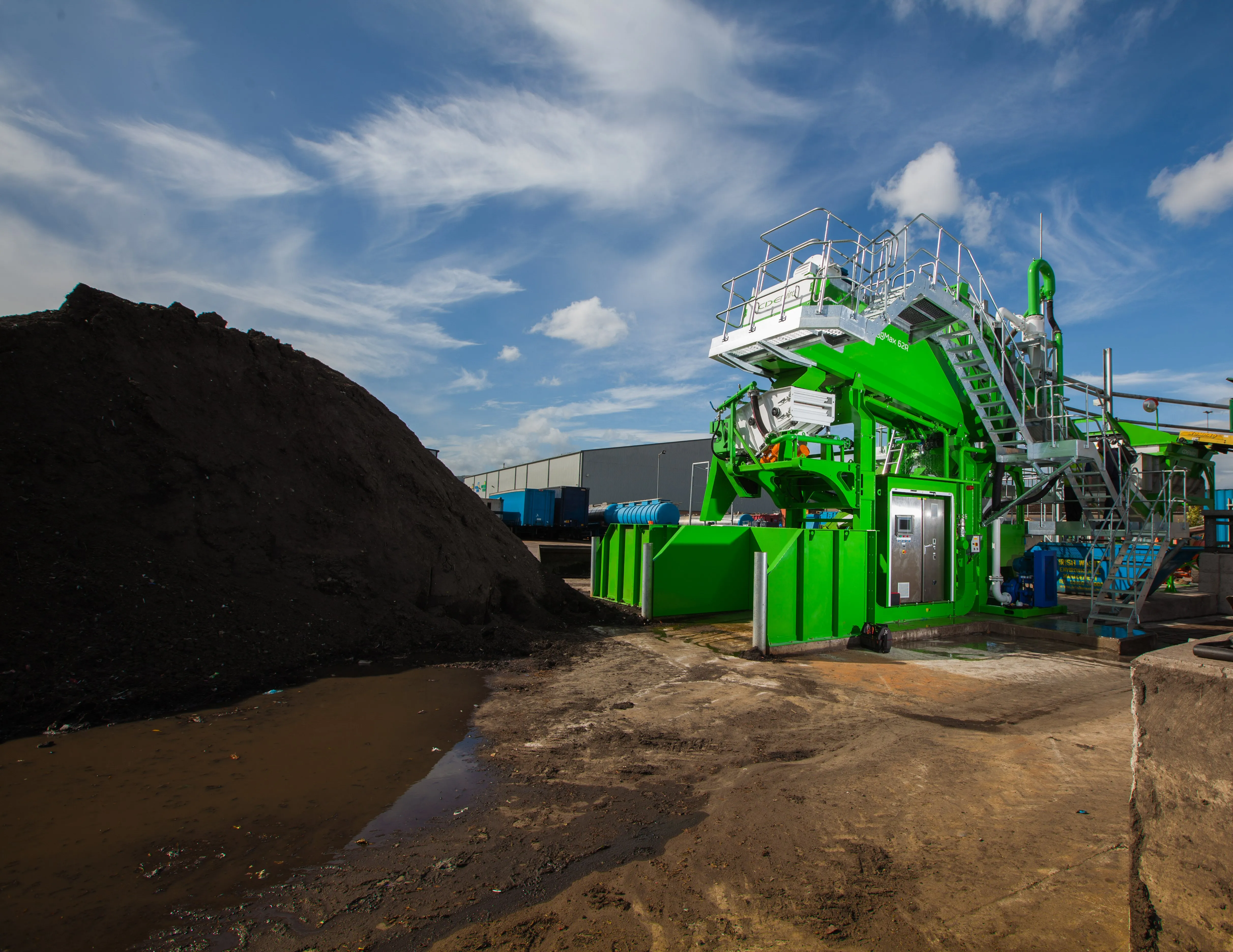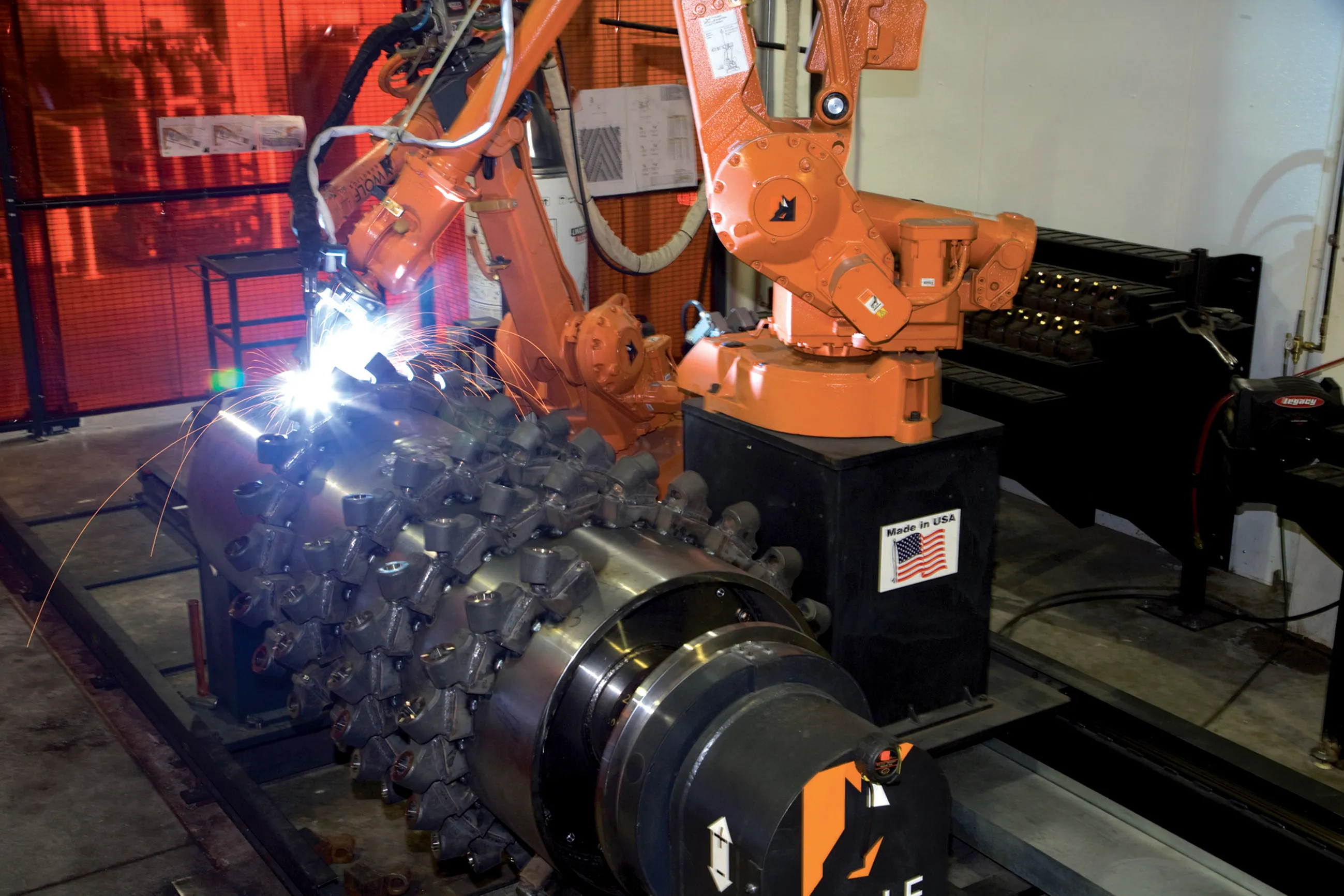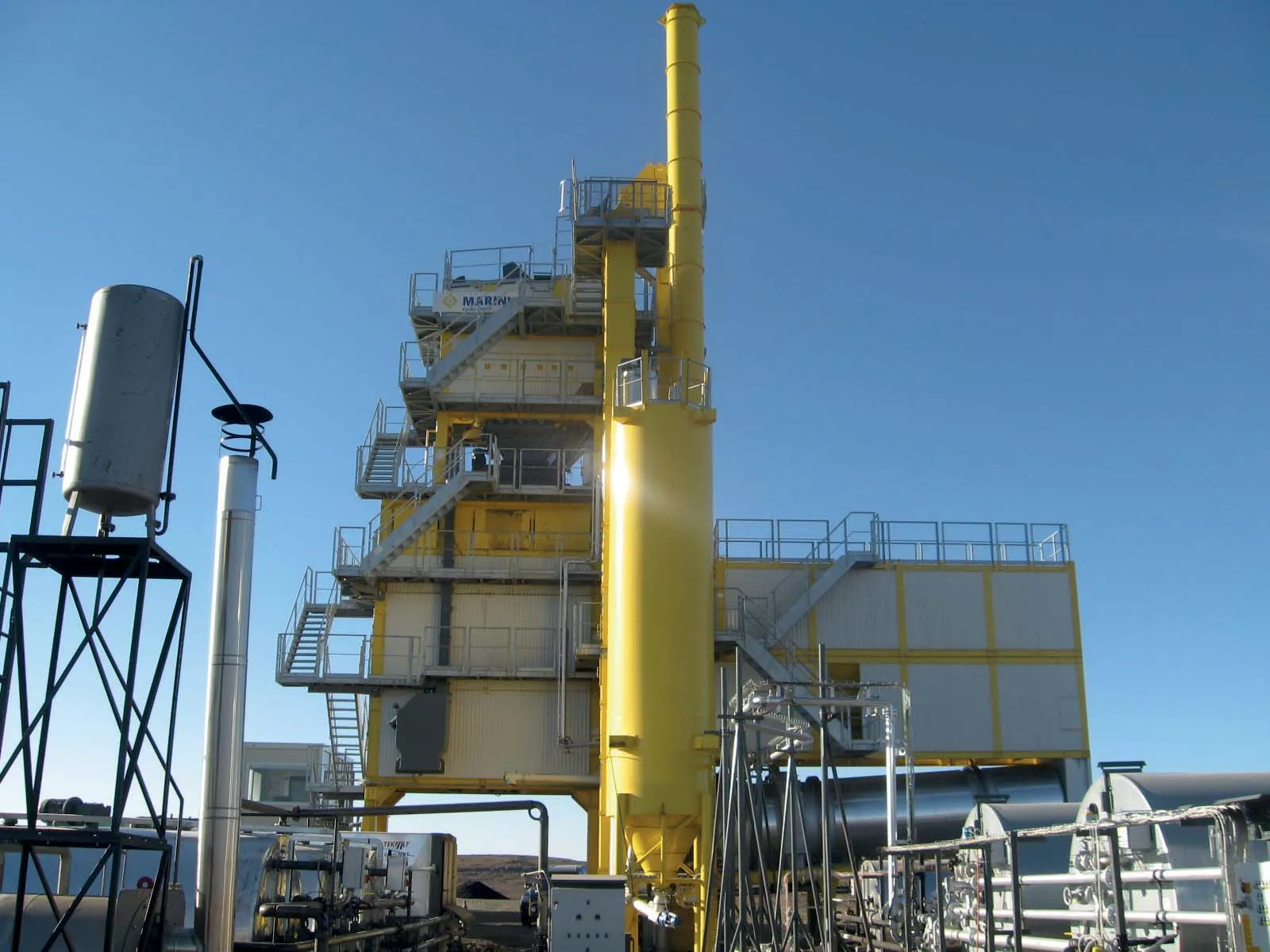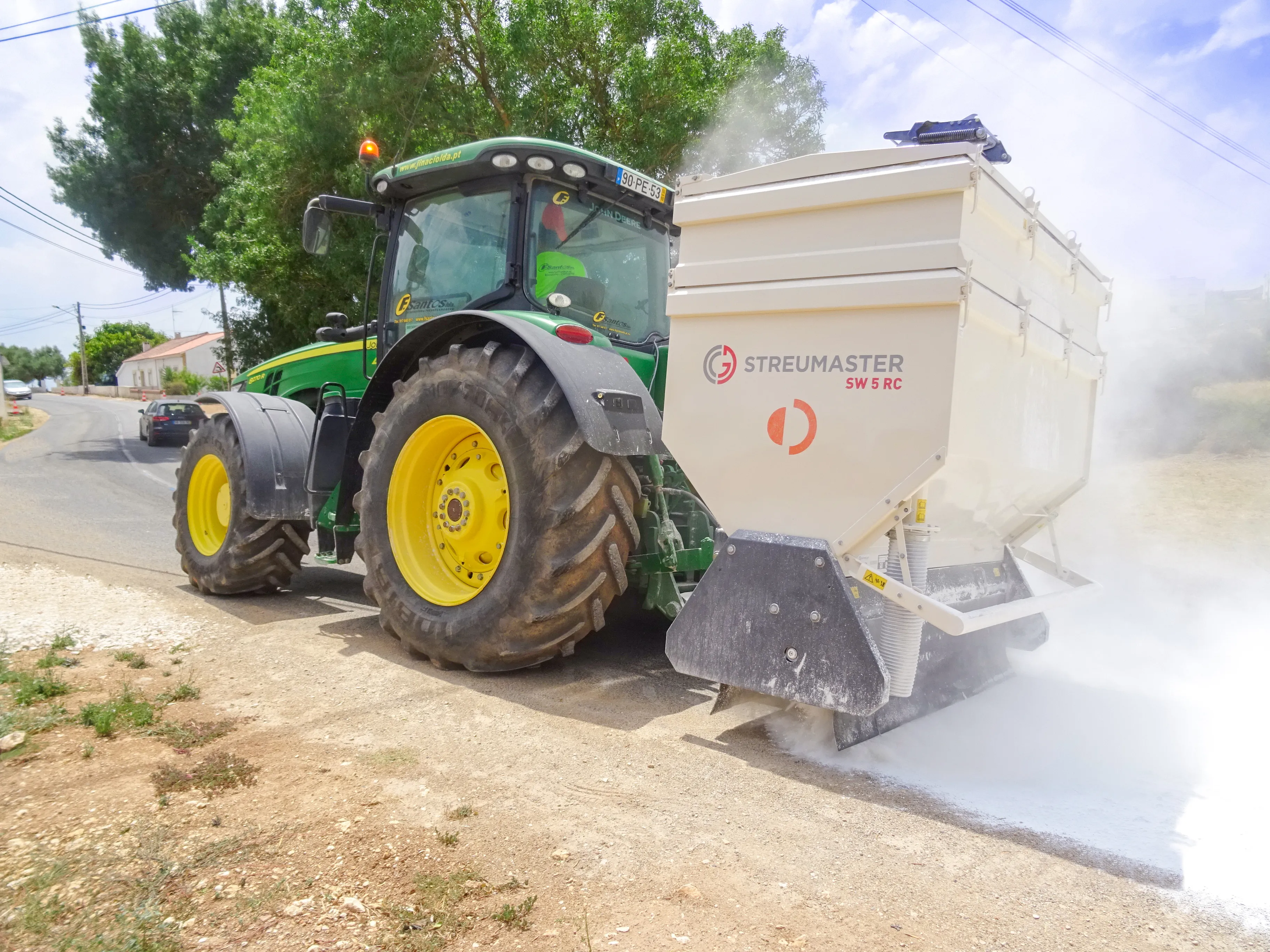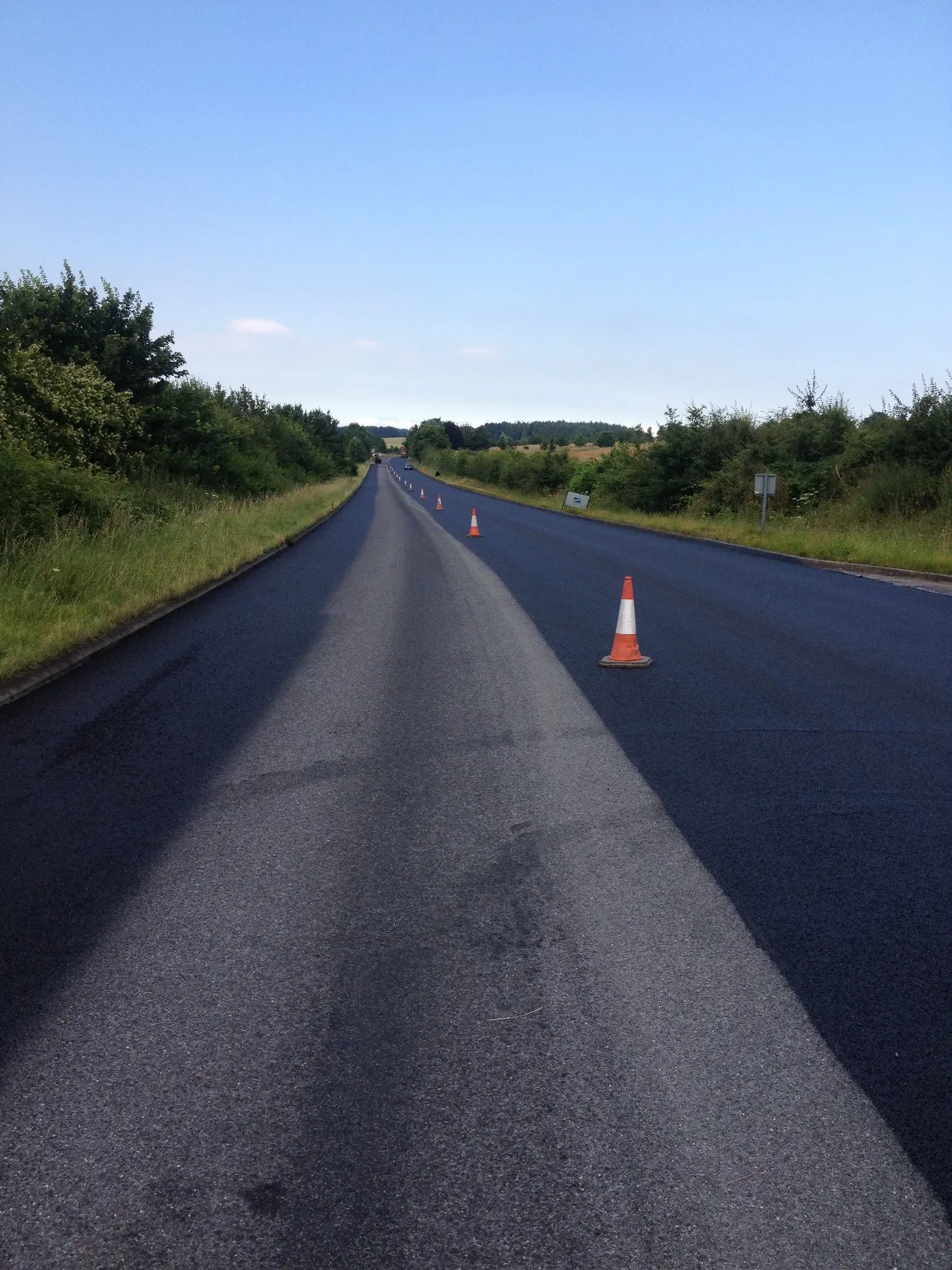
Bituchem’s FortSeal product has been applied to a countryside highway in Leicestershire to preserve and maintain the road surfacing. The FortSeal preservation product is undergoing a trial by Leicestershire County Council in the UK to assess its future potential in positively affecting the council’s road maintenance budget by prolonging the life of the county’s roads.
FortSeal is said to be a quick and effective solution for old and worn carriageways by repairing minor damage and preserving the existing asphalt against further corrosion. Forming part of the
The 1.5tonnes of FortSeal was hot laid by a phoenix spray tanker at a low rate of spread to ensure an even and thorough distribution of product onto the main road that runs through the village of Burton on the Wolds. Andrew Whailing, Senior Technician at Leicestershire County Council, explained, “Councils across the UK are having to find new and innovative ways of maintaining their highway network to achieve the same high standard of roads but with reduced resources. As such the focus is on a proactive approach towards preservation of existing assets rather than reactive work such as resurfacing. The FortSeal product allows us to apply a protective coating to the entire road surface, extending the life of the road surface and any repairs previously carried out. We are very pleased with the initial application of FortSeal and will now carefully monitor its performance. If the trial suggests that FortSeal provides a cost-effective means of extending the life of the surface, then we anticipate applying it to other roads in Leicestershire.”
The preservation material works to seal the surface to prevent effects of oxidisation and ravelling which helps to stop or slow down further deterioration. FortSeal is extremely durable and can withstand the challenges that moisture, heavy snow and gritting present whilst being able to seal minor cracks in the existing asphalt surface.
By using the FortSeal system, costly and time consuming road surfacing is not necessary, allowing councils to save money ensuring the roads are maintained to a high standard. The resealing of asphalt with the FortSeal emulsion also gives a fresh, blackened look that is identical to newly laid roads, adding to the aesthetic preservation of the highways.


